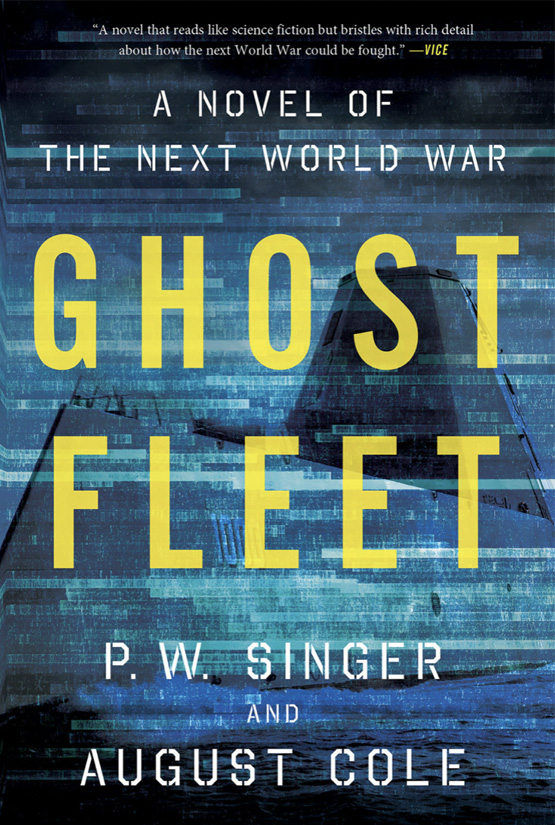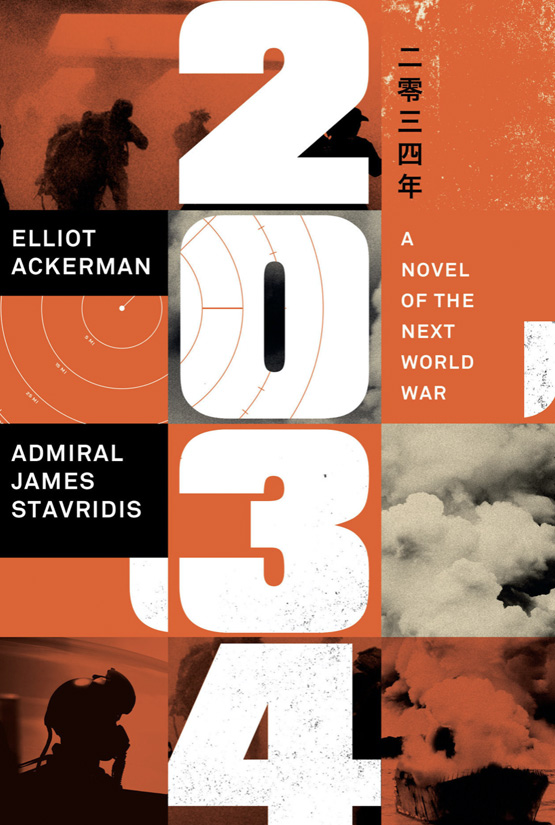How do you do an analytical exercise, posing a scenario of war between the United States and China, without falling into exaggeration or alarm? Two books that have been widely read by security and defence experts - GhostFleet was published in 2015 and has been studied in US military schools; 2034 was published this year - attempt to bridge the gap by adopting the form of a novel. But they embrace the genre without wanting to detach themselves too much from the credibility that normally accompanies analysis: the first novel provides as many as 374 endnotes, as if it were an academic essay, and the second is co-signed by one of the most prestigious US military officers, Admiral James Stavridis, who has been NATO's supreme commander. Both works embrace fiction as a method of foresight, but their pages aspire to present possible developments. Perhaps the most 'restraining' element of the authors' imagination is that, being all American, neither Ghost Fleet nor 2034 posits a final US victory (though neither does China).
The first work does not specify the year(s) in which the action takes place, although it probably points to a time later in the present century, beyond the 2034 of the other novel, for unlike the latter, which looks to the near future only to allow time for a credible motive for war to emerge between China and the United States, Ghost Fleet requires the developmentof new technology that gives Beijing sufficient advantage over its rival.
Having achieved this advantage, China attacks the US: it starts in space, firing anti-satellite weapons to disable sophisticated US warfare instruments - too interconnected and dependent on GPS - and makes use of a new technology, developed with Russia's financial aidand based on Cherenkov radiation, to locate and destroy US Navy submarines, which at present constitute one of the fundamental US military differentials over China. With the Hawaiian Islands (and their symbolic Pearl Harbor) occupied by the Chinese, the Pentagon has to call on the old fleet of reservation(hence the novel's degree scroll) and veterans of a less technological era to carry out the counterattack. This bravado, the still lively inventiveness of the American people (3D printers to organise resistance) and the space genius of a certain entrepreneur (following the example of Elon Musk and Jeff Bezos) allow status to be turned around, if only to return to the pre-war status.
2034 explores less the technological aspect and more the psychological pulse between the two great powers. The war begins as it is commonly thought to begin: in the South China Sea, following an "accident" in the US Navy's freedom of navigation duties there. In two strikes, Beijing gains control of the South China Sea and sets about seizing Taiwan. From then on, there is an escalation in the retaliations and counter-retaliations from each side. The US resorts to tactical nuclear weapons to destroy a Chinese city; China responds with a nuclear attack on two US cities (San Diego and Galveston), and the US reacts with a plan to destroy three enemy cities, although the final vicissitudes limit complete destruction to Shanghai. The process of mutual annihilation leads to the emergence of a referee, India, which emerges as the geopolitical winner of the confrontation, symbolised by the relocation of the UN headquarters to Mumbai.
Beyond the interest of the novels themselves - of variable quality - what is striking about this case is the birth of a Sino-American war literature. After a decade pervaded by the sense of decline, or at least deterioration, of the US as a superpower (undeniable, of course, from a relative point of view due to the strengthening of other powers, particularly China), we have just entered a decade that goes a little further and is defined by the Washington-Beijing confrontation. It is normal for this to have social manifestations of different kinds subject, and for this to be translated into literature and film. This has often been the case. For example, the new space degree programin which we find ourselves has been heralded by a new era of space films, so it may not be long before we see war productions about the great conflict of our generation.
Ghost Fleet does not pose a credible war scenario. It is not plausible that Beijing would suddenly throw all the military potential it can muster against the United States for no other reason than to dethrone it as the world's leading power. The novel has the apology that its purposeis to explore the capabilities of each contender and examine the possibilities offered by new technologies. For its part, 2034 does offer an imaginable and localised motive for the outbreak of hostilities, but it is not very realistic to propose a nuclear escalation in which the issuenumber of cities to be destroyed increases.
The authors of Ghost Fleet, PW Singer and August Cole, are consultants and analysts at subjectsecurity and have developed their skillfor writing stories. Singer has also written for Hollywood, while Cole is a former staff writer for the Wall Street Journal and has worked with the Atlantic Council think tank. There is gradesome mastery of the thriller, but at times the use of US defence jargon seems to narrow the audience to those in the defence business, which is where he has succeeded. In 2034, Elliot Ackerman and Admiral Stavridis (if the latter's work went beyond constructing the plot) have composed a more linear work, with an emphasis on the personal factors, both of whom know the human element on the battlefield (Ackerman was a Marine before he was a novelist, having served in Iraq and Afghanistan).


